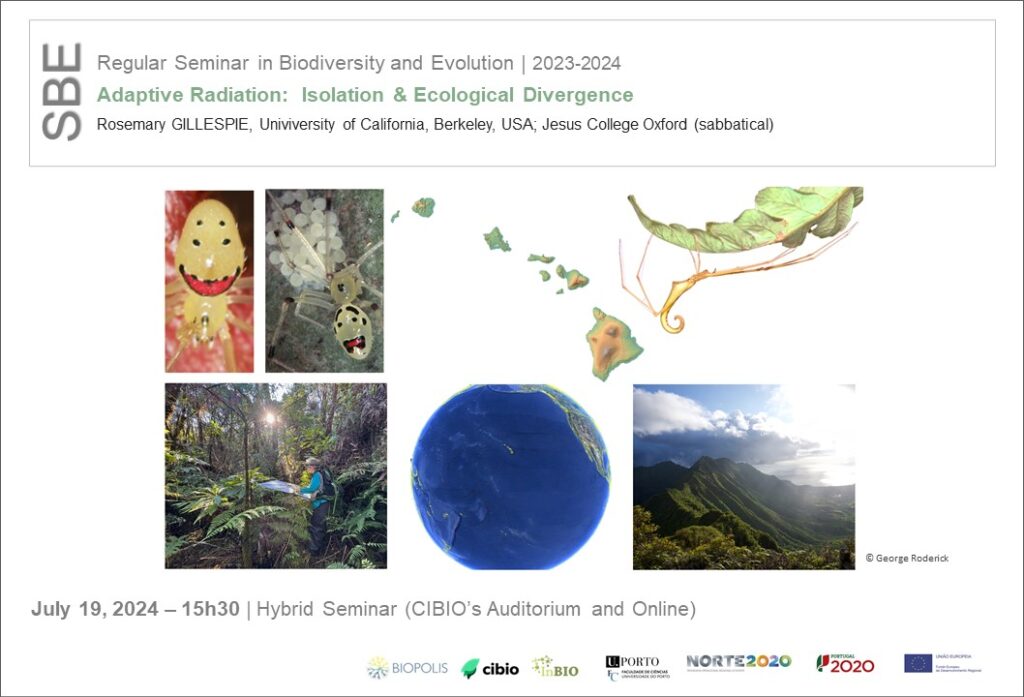Adaptive Radiation: Isolation & Ecological Divergence
Rosemary GILLESPIE, Univiversity of California, Berkeley, USA; Jesus College Oxford (sabbatical)
July 19, 2024 | 15h30 | Hybrid Seminar (Zoom Link: https://fc-up-pt.zoom.us/j/84429728251)

Adaptive radiation is one of the key drivers of species diversity, yet the mechanism through which it is achieved, and the outcome of the process, are largely unknown. In many lineages, initial divergence results from environmental or sexual selection leading to divergence of species between environments and subsequent secondary contact. In other lineages, initial reproductive isolation may be achieved without divergent selection; here, ecological niche divergence can develop as a result of interactions between close relatives during secondary contact. The Hawaiian archipelago – in which each island provides a snapshot in time of the evolutionary process – is one system that can offer insights into the processes of adaptive radiation, allowing the early stages of radiation to be studied in real time. I identify lineages in which the abiotic environment appears to play the dominant role in adaptive diversification, with repeated and convergent evolution of sets of taxa adapted to similar sets of environmental conditions. In contrast, divergence in other lineages appears to be the result of character displacement associated with direct interaction between close relatives, leading to convergent evolution of niche-specialized ecomorphs within a given environment. I will discuss the importance of differentiating between patterns to understand the processes that underpin adaptive radiation.
More information here